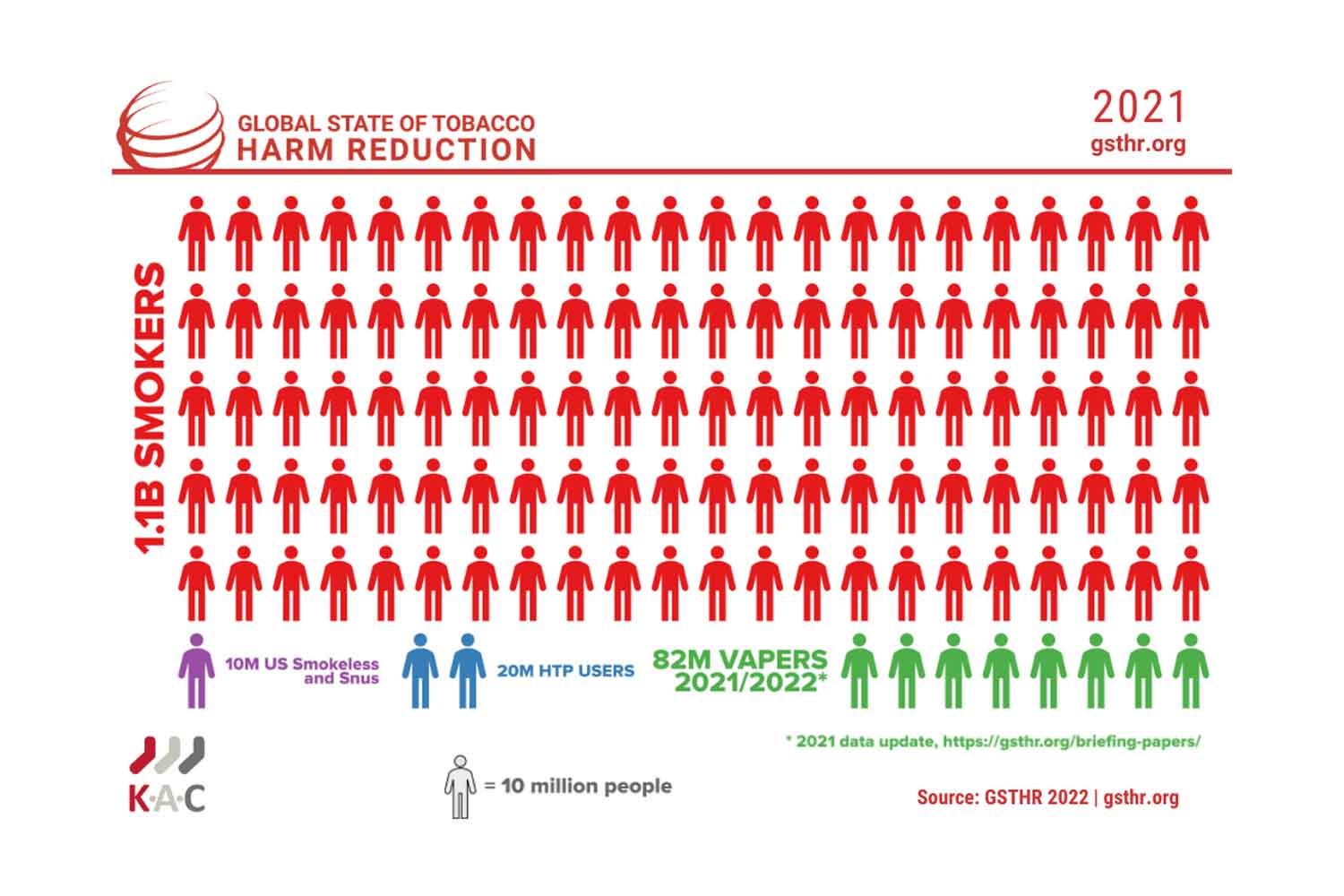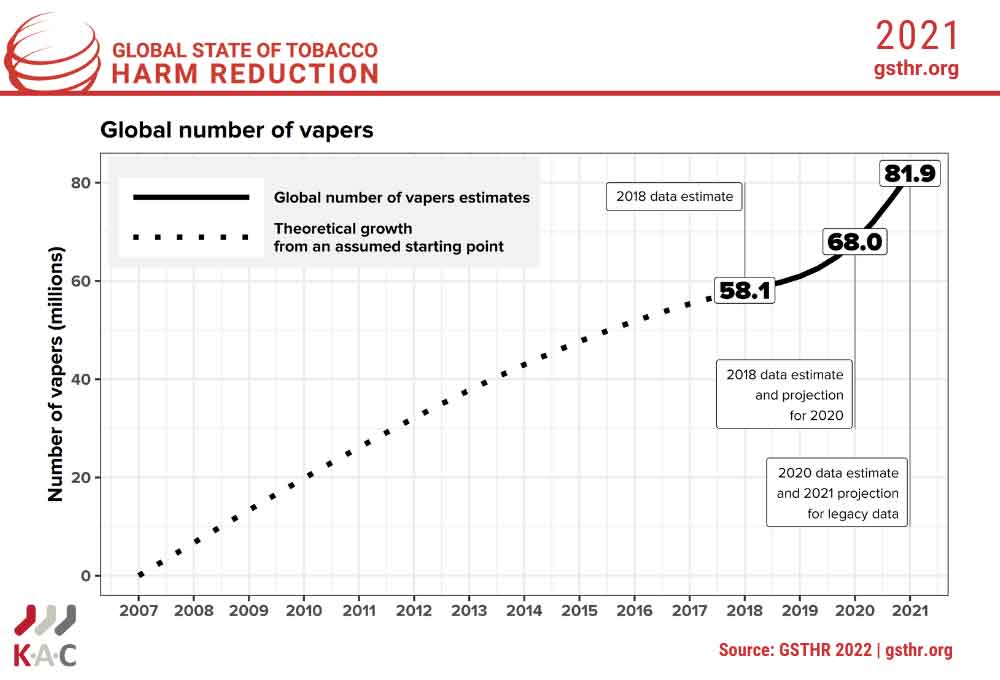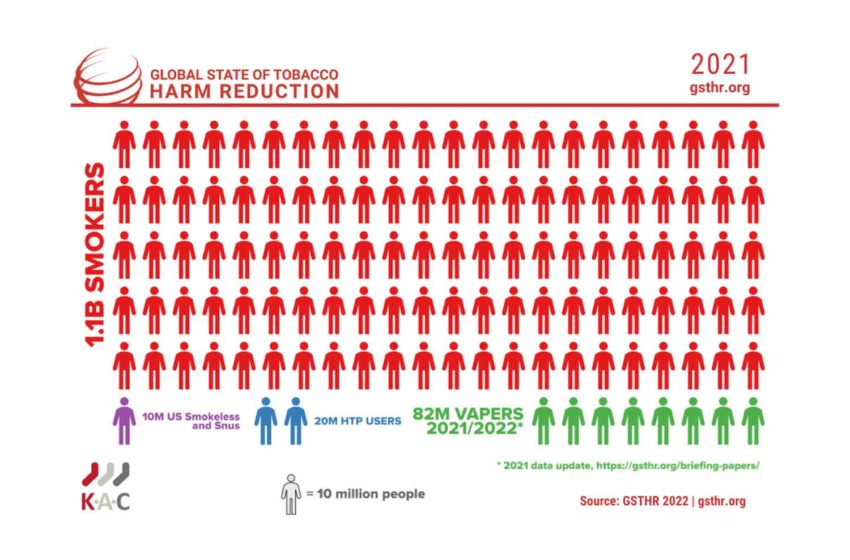
The number of vapers worldwide increased by 20 percent from 2020 to 2021, according to the latest research by the Global State of Tobacco Harm Reduction (GSTHR), a project from Knowledge Action Change. The organization estimates that there are now 82 million vapers worldwide.
The updated calculation was made possible by the release of a range of new data, including the 2021 Eurobarometer 506 survey, and is revealed in a new GSTHR briefing paper. The figure is based on 49 countries that have produced viable survey results on vaping prevalence.
To address the problem of missing data, the GSTHR used an established method of estimating vaper numbers in countries that currently have no information by assuming a similarity with countries in the same region and economic condition for which data points were available.
This estimate considers three factors—sales regulation status, World Health Organization regions and World Bank income groups—along with the Euromonitor data on vaping product market size from 2015 to 2021.

This [increase in vapers] is in spite of prohibitive policies in many countries who follow the World Health Organization’s anti-scientific stance against tobacco harm reduction, thanks to Michael Bloomberg’s billions and his personal zeal for a war on nicotine.”
Gerry Stimson, director, KAC
“As well as the substantial growth in the number of vapers globally, our research shows there has been rapid uptake of nicotine vaping products in some countries in Europe and in North America,” said Tomasz Jerzynski, data scientist at GSTHR. “This increase is particularly significant, because in most markets, these products have been available for only a decade.”
Indeed, the rise in the number of global vapers comes despite the GSTHR’s database showing nicotine vaping products are banned in 36 countries, including India, Japan, Egypt, Brazil and Turkey.
The new data also shows the U.S. is the largest market for vaping at $10.3 billion, followed by Western Europe ($6.6 billion), Asia-Pacific ($4.4 billion) and Eastern Europe ($1.6 billion).
“As this updated data from the Global State of Tobacco Harm Reduction shows, consumers find nicotine vaping products attractive and are switching to use them in increasing numbers worldwide,” said Gerry Stimson, director of KAC and emeritus professor at Imperial College London. “This is in spite of prohibitive policies in many countries who follow the World Health Organization’s anti-scientific stance against tobacco harm reduction, thanks to Michael Bloomberg’s billions and his personal zeal for a war on nicotine.”


